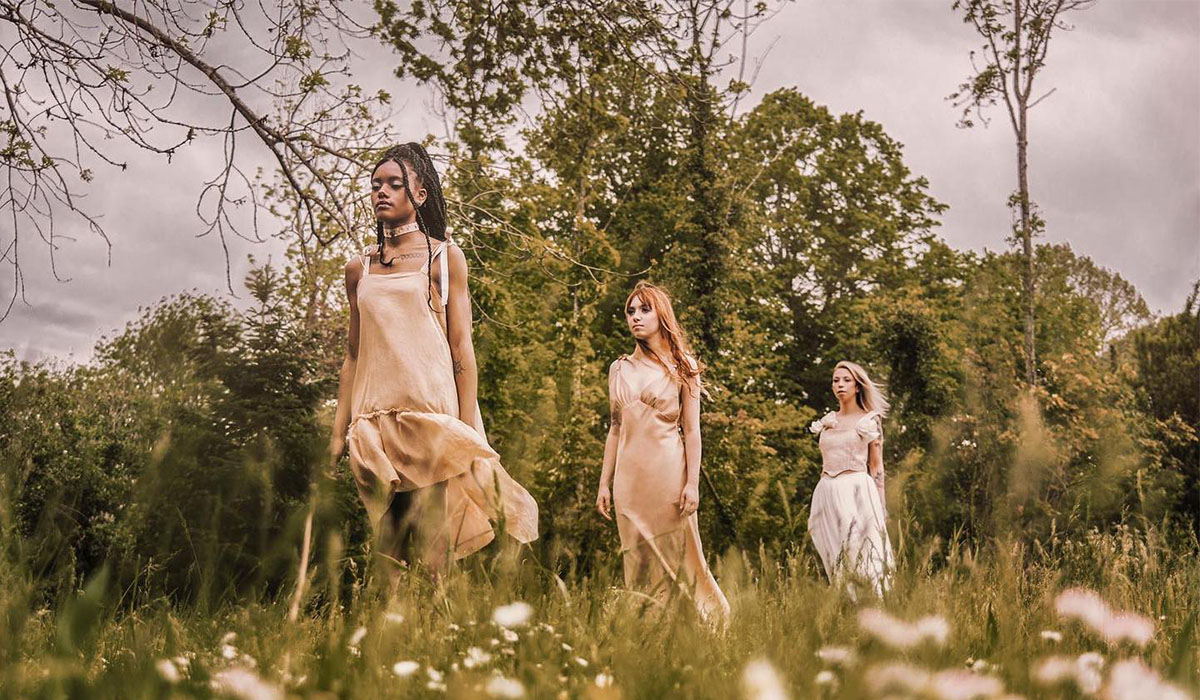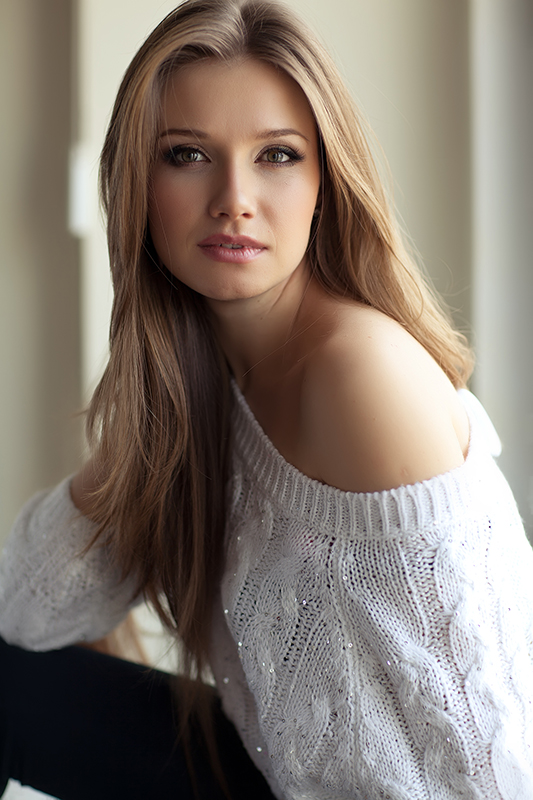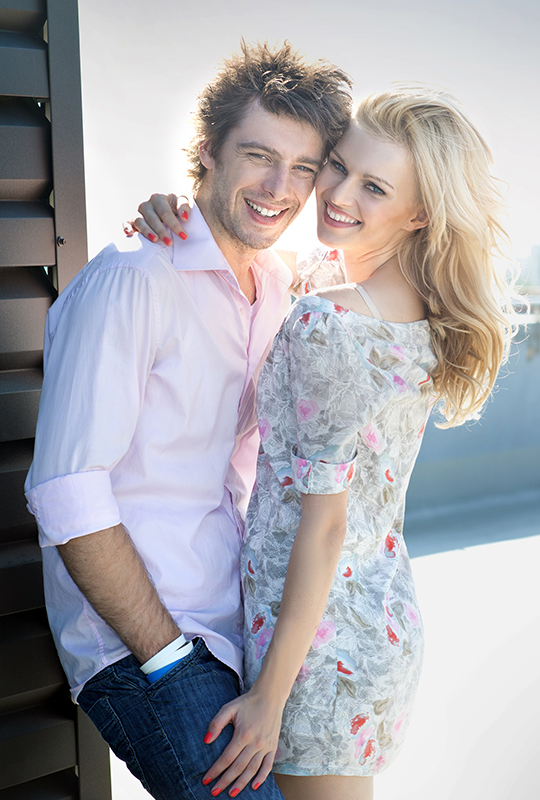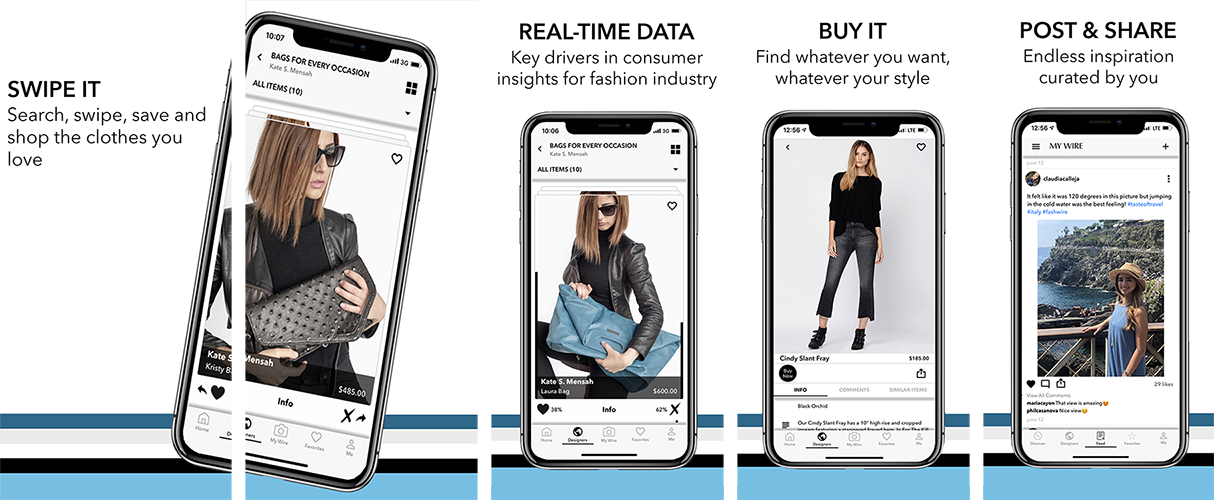
FASHTALKS WITH LO NEEL
Designer Interview
Oct 28, 2022 03:29 PM
When did you know you wanted to become a designer?
Since I was a child, I always wanted to be a designer as my grandmother was a seamstress. I completed my studies at the American Fashion School Academy in Paris and attended Les Beaux Arts de Paris. I fulfilled my dreams of becoming a designer for couture and small brands in Paris. After having my daughter, Loane, who also grew into the fashion atmosphere, we decided to create our brand together: LO NEEL.
What is your earliest design memory for your brand?
The earliest design memory of LO NEEL is the logo, all brands started from this point. Loane and I are both passionate about India and the Indian fashion culture. It was then logical to create something that incorporated this passion. I designed the logo of LO NEEL in Athens in 2018, I drew some peacocks, which are one of the animal symbols of India, then added flowers, and the brand logo was born. The first collection was inspired by this first creation; therefore, you can find a lot of handmade embroideries with flowers and peacocks.
“LO NEEL is a French eco-responsible and vegan brand, created by the desire to propose an alternative to the highly polluting fashion industry by developing a new design, more respectful of nature and beings.”
What is your favorite part about designing?
My favorite part is when I discover new sustainable materials and when I see the first prototype after creating it.
Loane likes to create the atmosphere of the collection and is inspired by the clothes.
How would you describe your personal style?
My personal style is very French with a lot of sailor t-shirts and unisex designer pieces, such as Comme des Garcon or Yohji Yamamoto. The personal style of Loane, my daughter, is rocker with touch bohemian and Berlin. To create the identity of the brand, we mixed our two different styles to create a unique, stylish wardrobe for LO NEEL.
What inspired you to name your brand?
The brand name is divided into two parts: LO and NEEL.
LO is simply the nickname of Loane, the co-founder of LO NEEL. It was Loane who had the idea to create an eco-friendly clothing brand. That's why her nickname was used to create part of the brand's name.
As for the second part, NEEL, Loane and I wanted to pay tribute to Alexandra David-Néel, the great explorer of the 20th century. She is a feminist icon in France, and she explored India when it was forbidden for Occidental women.
How does sustainability play a role in LO NEEL?
LO NEEL is a French eco-responsible and vegan brand, created by the desire to propose an alternative to the highly polluting fashion industry by developing a new design, more respectful of nature and beings.
LO NEEL offers a complete wardrobe of designer pieces with a poetic, bohemian chic style with a touch of rock'n'roll. The clothes are made from innovative, organic, and recycled eco-responsible materials, such as pineapple fiber, mulberry fiber, rose petals, and many more.
In addition to using innovative materials, LO NEEL makes its pieces with unique ancestral craftsmanship, most of them (handmade embroideries/details) hand-sewn in ethical and transparent workshops.
LO NEEL's purpose is to produce according to the principle of slow fashion, (i.e., in reduced quantities) with less impact on the environment.
The brand has obtained numerous certifications for the materials used, their respect for the planet and animals, as well as for the transparency of their production method.
What sets your brand apart from the rest?
We offer a large wardrobe of sustainable clothes that are created with very innovative and ecological materials. LO NEEL customers are curious and precursors of fashion. They love the pineapple fiber that replaces cow leather, and they also really like the rose petal fiber which replaces the traditional silk made by worms. The huge range of natural and recycled materials makes LO NEEL a unique brand that respects all beings.
What do you envision for the future of your brand?
As the creators, we would like to become the reference in terms of sustainable and ecological fashion. We believe that it’s important to educate people to consume less and in a more eco-conscious way. We would love to inspire people to change their habits from shopping fast fashion and converting to shopping sustainably with our brand, LO NEEL.
“The fashion industry itself didn’t change. It’s the consumers who changed with time. They are more educated; they see how bad it is to buy new clothes every week from fast-fashion brands. They now have the will to find alternatives and buy less.”
What were some hurdles you had to overcome in your business?
Three years ago, people had never heard of pineapple or rose petal fibers and it was a challenge to create with materials no one had ever heard about. With time, more and more people became educated about sustainable materials and they became the greatest asset of LO NEEL.
What is the one piece of advice you would give to a new designer?
Think about the future generations and create in a conscious way that helps repair the environmental damage done to our planet, animals, and human beings.
How important is social media to your brand?
Social media is really important to LO NEEL, as we still are a small brand and it’s a way to have daily brand awareness. Instagram is a tool that is very functional; it helps us to be very creative and allows us to engage with our community.
What is the most important thing you would like your brand to be recognized for?
The most important thing for us is to be recognized for our everyday efforts to create with as little impact as possible and to keep looking for new alternatives to be always better and sustainable.
How would you define fashion?
Fashion is a secondary need to dress every day. But fashion is also a primary need to express ourselves in the way we dress; to communicate through our clothes and to inspire others.
How has the fashion industry changed since you first started out?
The fashion industry itself didn’t change. It’s the consumers who changed with time. They are more educated; they see how bad it is to buy new clothes every week from fast-fashion brands. They now have the will to find alternatives and buy less.
Do you find it difficult to have a brand based in Paris, France? What are the perks versus the challenges?
It would have been challenging to have such a brand anywhere else in the world. It’s a wonderful opportunity to be based in Paris which is “the place to be” for designers.
If you could go back and tell yourself one thing before beginning your career, what would it be?
Keep believing in yourself, never doubt and always create!




